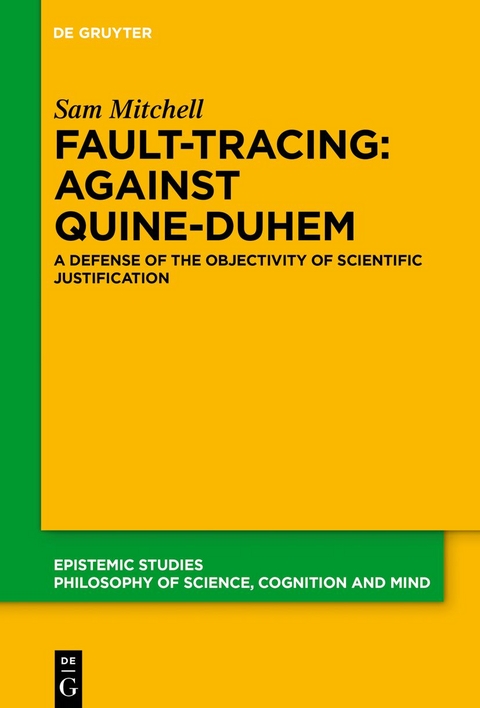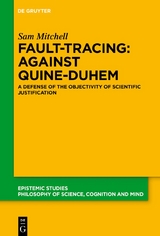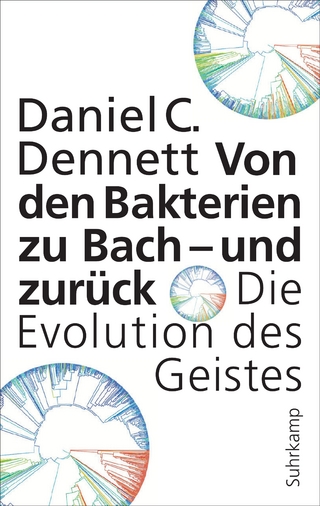Fault-Tracing: Against Quine-Duhem
A Defense of the Objectivity of Scientific Justification
Seiten
This series is devoted to publishing books in the fields of epistemology, philosophy of mind, philosophy of language, and philosophy of science. It is an outstanding platform for state of the art contributions. The studies are carried out in an argumentative style and advance current debates in a significant manner. While the main publication language is English, we also welcome German language submissions. All books are peer-reviewed.
It is widely believed in philosophy of science that nobody can claim that any verdict of science is forced upon us by the effects of a physical world upon our sense organs and instruments. The Quine-Duhem problem supposedly allows us to resist any conclusion. Views on language aside, Quine is supposed to have shown this decisively. But it is just false. In many scientific examples, there is simply no room to doubt that a particular hypothesis is responsible for a refutation or established by the observations. Fault Tracing shows how to play independently established hypotheses against each other to determine whether an arbitrary hypothesis needs to be altered in the light of (apparently) refuting evidence. It analyses real examples from natural science, as well as simpler cases. It argues that, when scientific theories have a structure that prevents them from using this method, the theory looks wrong, and is subject to serious criticism. This is a new, and potentially far-reaching, theory of empirical justification.
It is widely believed in philosophy of science that nobody can claim that any verdict of science is forced upon us by the effects of a physical world upon our sense organs and instruments. The Quine-Duhem problem supposedly allows us to resist any conclusion. Views on language aside, Quine is supposed to have shown this decisively. But it is just false. In many scientific examples, there is simply no room to doubt that a particular hypothesis is responsible for a refutation or established by the observations. Fault Tracing shows how to play independently established hypotheses against each other to determine whether an arbitrary hypothesis needs to be altered in the light of (apparently) refuting evidence. It analyses real examples from natural science, as well as simpler cases. It argues that, when scientific theories have a structure that prevents them from using this method, the theory looks wrong, and is subject to serious criticism. This is a new, and potentially far-reaching, theory of empirical justification.
Sam Mitchell, Mount Holyoke College, South Hadley, Massachusetts, USA.
| Erscheinungsdatum | 23.01.2021 |
|---|---|
| Reihe/Serie | Epistemic Studies ; 40 |
| Zusatzinfo | 20 b/w ill., 3 b/w tbl. |
| Verlagsort | Berlin/Boston |
| Sprache | englisch |
| Maße | 155 x 230 mm |
| Gewicht | 468 g |
| Themenwelt | Geisteswissenschaften ► Philosophie ► Erkenntnistheorie / Wissenschaftstheorie |
| Geisteswissenschaften ► Philosophie ► Philosophie der Neuzeit | |
| Schlagworte | Confirmation • Duhem • quine • Quine-Duhem • scientific justification • scientific objectivity • Wissenschaftliche Objektivität • Wissenschaftliche Rechtfertigung |
| ISBN-10 | 3-11-068499-3 / 3110684993 |
| ISBN-13 | 978-3-11-068499-5 / 9783110684995 |
| Zustand | Neuware |
| Informationen gemäß Produktsicherheitsverordnung (GPSR) | |
| Haben Sie eine Frage zum Produkt? |
Mehr entdecken
aus dem Bereich
aus dem Bereich
Buch | Softcover (2023)
Reclam, Philipp (Verlag)
7,00 €
die Grundlegung der modernen Philosophie
Buch | Softcover (2023)
C.H.Beck (Verlag)
18,00 €
die Evolution des Geistes
Buch | Softcover (2025)
Suhrkamp (Verlag)
30,00 €


![Was heißt Denken?. Vorlesung Wintersemester 1951/52. [Was bedeutet das alles?] - Martin Heidegger](/media/113619842)

